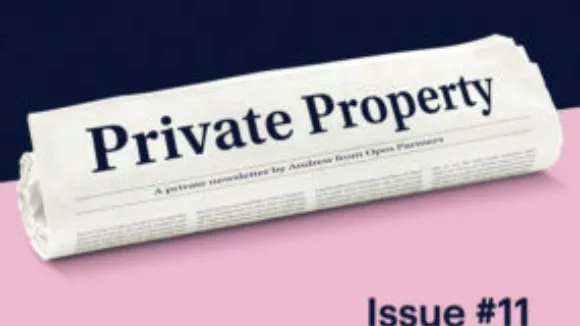
Property Investment
Property Investment
3 min read

Author: Andrew Nicol
Managing Director, 20+ Years' Experience Investing In Property, Author & Host
Reviewed by: Ed McKnight
Resident Economist, with a GradDipEcon and over five years at Opes Partners, is a trusted contributor to NZ Property Investor, Informed Investor, Stuff, Business Desk, and OneRoof.
Private Property – our weekly newsletter that gives you insights into what's happening in the NZ property market. Written by managing director Andrew Nicol. Sign up to receive this in your inbox every Thursday.
Inflation is at the top of everyone’s minds right now. You can’t read Stuff or the NZ Herald without seeing the headlines.
But I end up rolling my eyes at much of the financial commentary in the papers because it either:
Here’s a good example of what I mean. In this month’s NZ Property investor magazine, one commentator stated that real (inflation-adjusted) house prices have increased by 1.7% over the long term per year.
(Full disclosure: Opes Partners owns NZ Property investor magazine, but we don’t exercise editorial control over what our columnists write)
This was meant to demonstrate that – over the long term – house prices increase at a low rate. And to a first-time investor, that could sound really scary.
Let’s break down what this really means for property investors.
The first thing to wrap your head around is the difference between real and nominal changes in house prices.
Nominal growth is the actual price you pay.
So if you buy a property in 2022 and pay $650,000, that’s the nominal price.
If it’s worth $715,000 next year, it has increased by a nominal $65,000.
That’s 10% nominal growth. These are the numbers we’re all used to dealing with.
But this is different from what economists call the ‘real’ change in house prices.
The real price is the inflation-adjusted price.
Let’s say inflation was 10% as well.
So inflation = 10%. House price growth = 10%.
In that case, economists would say that ‘real’ house prices haven’t changed at all. Even though your property went up by 10%.
So, returning to the Property Investor Mag column, 1.7% isn’t the rate that house prices increased.
The rate is 1.7% + inflation, which over the past 22 years has been anywhere between 0 and 7%.
You might say, “well, fair enough, shouldn’t we consider inflation?
Yes, inflation is something to think about.
But this commentator also missed something important. Property investors have a foot in both races.
Because while inflation devalues our houses (in real terms) each year … it also decreases the real value of our mortgages.
Think of it this way. Inflation is when things become more expensive. So the same dollar you had last year can’t buy the same amount of stuff. So effectively, your money is worth less.
And if a dollar is worth less, the real value of your mortgage goes down. So, inflation decreases the real value of your debt.
So let’s take a look at a property bought with 100% debt where the real value of a property increases by 1.7%, and the mortgage value is eroded by inflation.
See how the investor’s wealth grows – not just by the property's real value increasing but also by the inflation-adjusted value of the mortgage being eroded away.
There’s too much hysteria surrounding inflation. There needs to be a more balanced conversation, especially on it impacts us as property investors.
Property investors need to know:
And this is because the term ‘real’ house prices is a technical term. It’s not the house prices that you and I observe when we consider how quickly our houses have changed in value.
Sign up here 👇
Managing Director, 20+ Years' Experience Investing In Property, Author & Host
Andrew Nicol, Managing Director at Opes Partners, is a seasoned financial adviser and property investment expert with 20+ years of experience. With 40 investment properties, he hosts the Property Academy Podcast, co-authored 'Wealth Plan' with Ed Mcknight, and has helped 1,894 Kiwis achieve financial security through property investment.
This article is for your general information. It’s not financial advice. See here for details about our Financial Advice Provider Disclosure. So Opes isn’t telling you what to do with your own money.
We’ve made every effort to make sure the information is accurate. But we occasionally get the odd fact wrong. Make sure you do your own research or talk to a financial adviser before making any investment decisions.
You might like to use us or another financial adviser